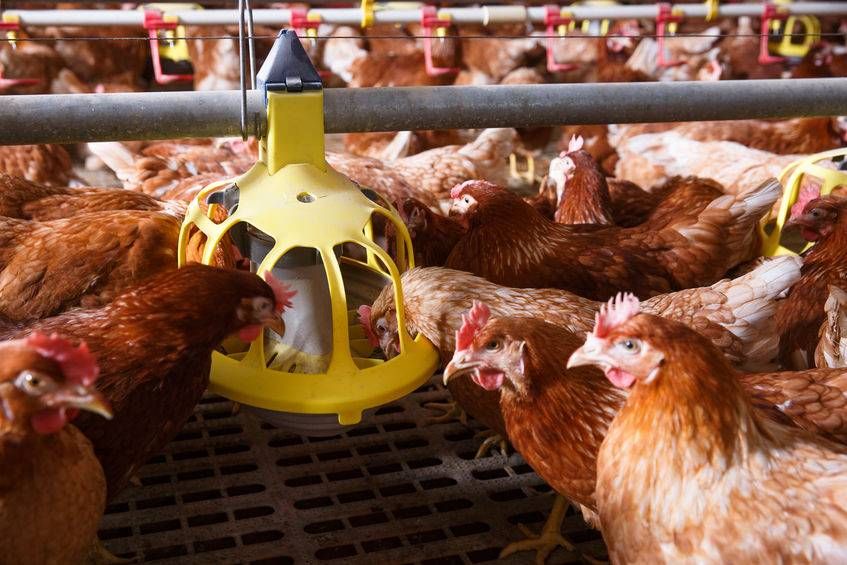
A poultry vet says strict on-farm biosecurity combined with vaccination will help Welsh egg and broiler producers continue the downward trend in antibiotic use.
Ian Jones, of the Hafren Veterinary Group in mid-Wales, says poultry producers can have some influence on safeguarding people against antimicrobial resistance by continuously reviewing biosecurity at all stages of production and by adopting disease management practices.
Mr Jones, who oversees the health of 3.5 million laying hens and 750,000 broilers in mid-Wales, was addressing poultry farmers in Welshpool at one of a series of Welsh government Farming Connect meetings held to advise farmers on appropriate antibiotic use.
“A decade ago everything had a jab of this or a dose of that, we were all too quick to look at antibiotics as an easy fix but we are now using antibiotics in a much more targeted way," he said.
Efforts have also been made to reduce use or to remove entirely antibiotics considered critically important to human health (CIAs).
Second - and third - generation cephalosporins have not been used in poultry production since 2012, colistin was removed in 2016 and the use of Fluoroquinolones has been cut by 91% in six years.
“We must continue to demonstrate that we are being totally responsible so that if we need to use antibiotics we can," Mr Jones urged.
'Tighter biosecurity'
To do that, there must be a joined-up approach to disease prevention – a vaccination strategy by itself won’t safeguard poultry if hygiene practices are poor, he insisted.
There has been a big growth in the number of free-range egg systems in mid-Wales; these systems have biosecurity challenges because it is more difficult to keep a biosecure site when birds are exposed to the outdoors in spaces shared with wild birds.
A tighter biosecurity programme is therefore needed, Mr Jones advised, covering visitors to the farm and vaccination to minimise disease challenges.
In layer systems, longer turnarounds between batches of hens could be beneficial, he suggested.
Mr Jones said: “When it comes to clean-out it is not about the old flock but the new one. I would advocate going for a longer turnaround, it does make a massive difference.
“With fast turnarounds everyone is in a rush and things don’t get done."
'Early detection'
Early detection of disease is essential to identify which disease needs to be treated. “If there is a disease breakdown it is absolutely critical that you act quickly," Mr Jones told farmers.
“If you treat promptly and early you don’t tend to get problems again but once disease gets hold it is more difficult to control."
Laboratory fees, Mr Jones calculated, are a relatively small investment when compared to the cost of treatments or production losses if disease escalates.
He insisted that antibiotics must have a place in a sustainable poultry industry to maintain the health and welfare of birds, the aim must not be to stop their use entirely.
By taking a “little as possible, but as much as necessary” approach, further resistance issues can be avoided and the future use of antibiotics for human and poultry health will be safeguarded, he advised.
But he warned producers not to be complacent. He said: “It is not a question of if we can reduce antibiotic usage further, we will have to."
